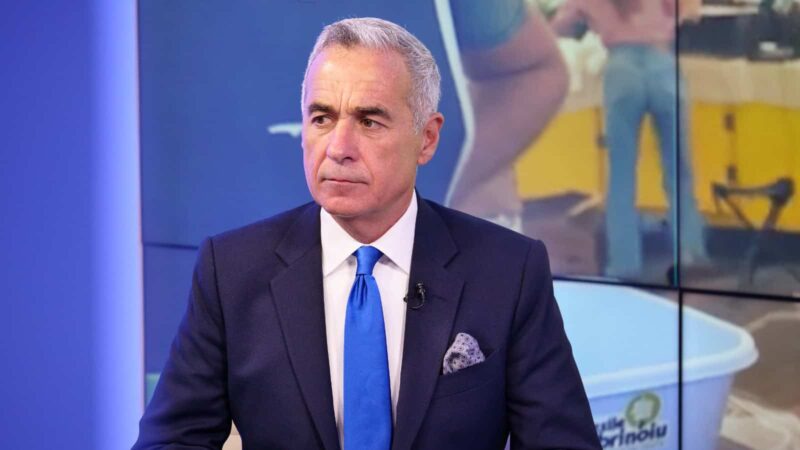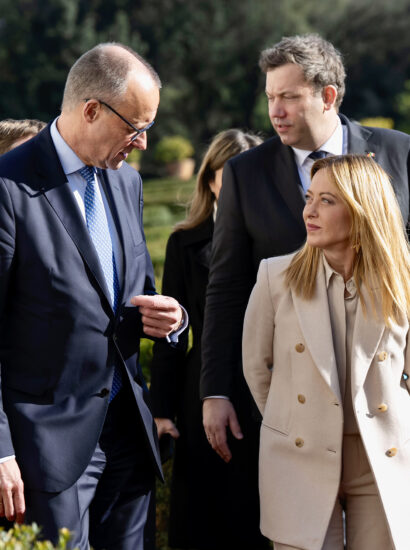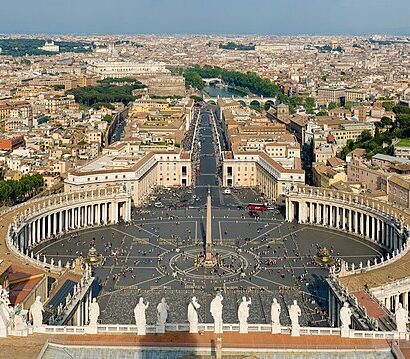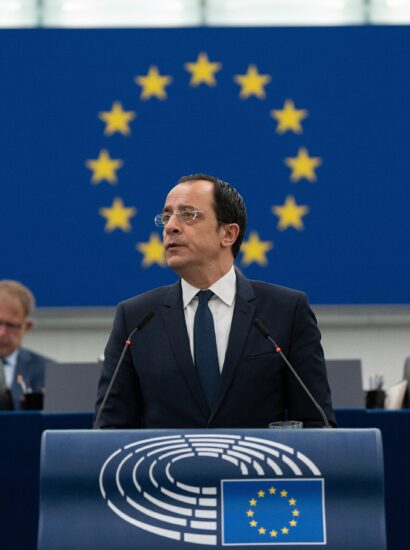Update: On Friday, December 6, the Romanian Constitutional Court canceled the results of the first round of votes and announced entirely new elections will be held instead.
As we are in the midst of Romania’s ‘super electoral year’ – the country just after a parliamentary and in the middle of a presidential election – possible Russian hybrid warfare and election interference and disinformation campaigns via social media have raised concerns.
Additionally, far-right groupings gained an electoral boost in the legislative campaign from a non-party presidential candidate, Calin Georgescu. According to the results released, the Alliance for the Union of Romanians (AUR) finished second with 18.2 percent, nearly double what it won in the last parliamentary election in 2020. Two small far-right groups reached the 5 percent threshold and entered Parliament for the first time.
The Party of Young People, another new, anti-establishment conservative grouping that entered Parliament with 6.3 percent of the vote, has endorsed Georgescu for the presidency, saying that it saw it as a sign from God.
The legislative election resulted in a highly fragmented Parliament (not the first time in Romanian politics) divided between pro-Western centrist parties, the Social Democrats (PSD), and far-right/anti-establishment groups. The most likely scenario is that the PSD will have to form a coalition with the PNL.
TikTok Politician Rides the Far-right Surge
However, the real surprise in the news was that Calin Georgescu, a soil scientist and ultranationalist political outsider, won the first round of the Romanian presidential election by attracting young voters on TikTok. Georgescu’s feat of coming from nowhere raised red flags about under-the-radar influence operations.
The result, one of the biggest electoral upsets in Romania’s post-communist history, triggered the swift resignation of the pro-EU party Prime Minister Marcel Ciolacu, who finished only third and thus disqualified from the presidential race runoff.
Romania: The constitutional court has validated the results of the first round of the presidential election.
Elena Lasconi (USR-RE) won the vote in major cities, while Călin Georgescu (*) secured a plurality in smaller towns and parts of rural areas.
➤ https://t.co/UhvC4YOhAA… pic.twitter.com/9P65y7gP8L
— Europe Elects (@EuropeElects) December 3, 2024
Georgescu’s lead in the first round of the presidential race stunned Romania’s political establishment and its NATO allies, alarmed by his outspoken hostility to the Western military alliance. The politician’s opponents suspect that covert activity, potentially by Russia, was behind Georgescu’s wildly popular TikTok campaign.
Georgescu has campaigned as a maverick outsider determined to break the grip of establishment parties tainted by corruption. Georgescu also praised President Vladimir Putin of Russia and tributes to Romania’s notoriously antisemitic fascists in the 1930s and early 1940s during World War II.
His idealization of rural and farm life was also a key element of ultranationalism in the 1930s, summed up by the “blood and soil” slogan of Nazi Germany. Georgescu himself praised Alexander Dugin during an interview, where Russian philosopher and long-time Putin ally compared him to the Hungarian Prime Minister, Viktor Orban: “Călin Georgescu is an outstanding politician, he is useful for us. He cannot be called pro-Russian, but he is similar to Orban.” Dugin’s theories also contain ultra-nationalism and anti-Semitism.
Georgescu’s videos often contained strong national symbols, such as the Romanian tricolor and images of historical heroes, which gave his messages an emotional charge. The short, snappy format allowed him to convey his radical views quickly and concisely. The viral content was viewed by millions thanks to the platform’s algorithm.
A few days before the elections, the Central Election Office ordered the deletion of several of its videos because they did not contain the mandatory election IDs. This was not only considered a violation of the rules, but also gave the impression that Georgescu was trying to influence voters by unfair means.
The former soil expert has some 3.8 million likes on TikTok and 298,000 followers, while his videos regularly attract millions of views. During the campaign, accounts with bot-like behavior were highly active in comments on YouTube, Facebook and TikTok.
However, the TikTok campaign had its effect by then, with Georgescu’s popularity soaring in the final weeks, especially among young voters and those dissatisfied with the political system.
Apart from Georgescu, it is also quite worrying that the AUR, from which he was ousted for being too radical, remains a pretty heavily nationalist party, and its presidential candidate came fourth with nearly 14 percent. So, the two radical right candidates got 37 percent.
Critical Issues of the Election
Romania is grappling with a prolonged demographic decline, with millions of young workers leaving in search of higher-paying jobs abroad. Those who remain are battling a cost of living crisis and the threat of outright poverty, as well as decaying public services that undermine trust in the system. According to the GLOBSEC Trends report, Romanians hold firm beliefs in misleading information regarding healthcare and vaccines.
Georgescu’s meteoric surge was driven by voter disillusionment with Romania’s two largest mainstream parties, which have been in a grand coalition since 2021 and are seen as “incompetent.” Although Romania’s economic indicators have shown clear positive trends recently, the country faces many structural problems. These can be classified into seven broad categories based on the collection of POLITICO: demographic decline, lack of skilled workers, cost of living crisis, inequality, regional disparities, the collapse of the health care system, and most of all, corruption in all aspects of life.
A sovereignist Georgescu, who interestingly has a globalist past, now presented an anti-globalisation, anti-Nato, Eurosceptic program entitled “Food, Water, Energy” and stresses self-sufficiency. Georgescu’s views can be labeled with ecofascism, in which individuals and groups synthesise radical far-right politics with environmentalism.
Georgescu fully embraces Trump as a model for his more nationalist drive on the economy. “It’s about the vision – that’s what I want written – a vision for peace and a vision for how it was America first, Romania has to be first,” Georgescu said. He also claims to speak “for those who feel they do not matter and actually matter the most,” as he puts it.
Now, declassified intelligence documents say that the Kremlin tried to swing the election in Călin Georgescu’s favor but strongly suggest it. The documents allege that paid influencers, along with members of extremist, right-wing groups and people with ties to organized crime, promoted Georgescu’s candidacy online. Georgescu claims he didn’t receive any campaign support outside Romania; his message was what simply resonated with the people.
Far-right Tide at Eastern Europe – A New Threat?
In 2024, we have been witnessing the rise of the European far-right: first at the European elections, where even in the “core states” like France and, in some sense, Germany, the populists gained momentum. In autumn, this trend continued in the eastern part of the bloc, where Austria’s Freedom Party won the largest share of votes. The FPÖ, as it’s known, was founded by former Nazis and wants to “remigrate” Austrian nationals with migrant roots to create a more “homogenous” society. If we add that we’ve already seen similar political successes based on populist rhetoric in Hungary and Slovakia, we can state that the illiberal, far-right forces are in a surge in the region. Simon Tisdel wrote in his column at the Guardian: “Instability along the EU’s south-eastern frontline, exacerbated by economic discontents, is increasing. Fear of what Russia might do next, after Ukraine, is driving support for Kremlin appeasers and conciliators.”
Romania, a nation of 19 million, has been a member of NATO for 20 years. It has sent weapons and ammunition to Kyiv, borders Ukraine, looks out over the Black Sea at Russia-occupied Crimea, and is home to a U.S. Aegis Ashore missile defense system in Deveselu, southern Romania. The country is also home to an airbase that is growing into the largest in Europe, where both Romanian and American forces are stationed. Therefore, Romania’s position as a key regional security actor in the military alliance may be jeopardized by a significant political change in Bucharest.








[…] recently, in the Romanian presidential election, a surprise candidate, the non-party Calin Georgescu, probably backed by […]